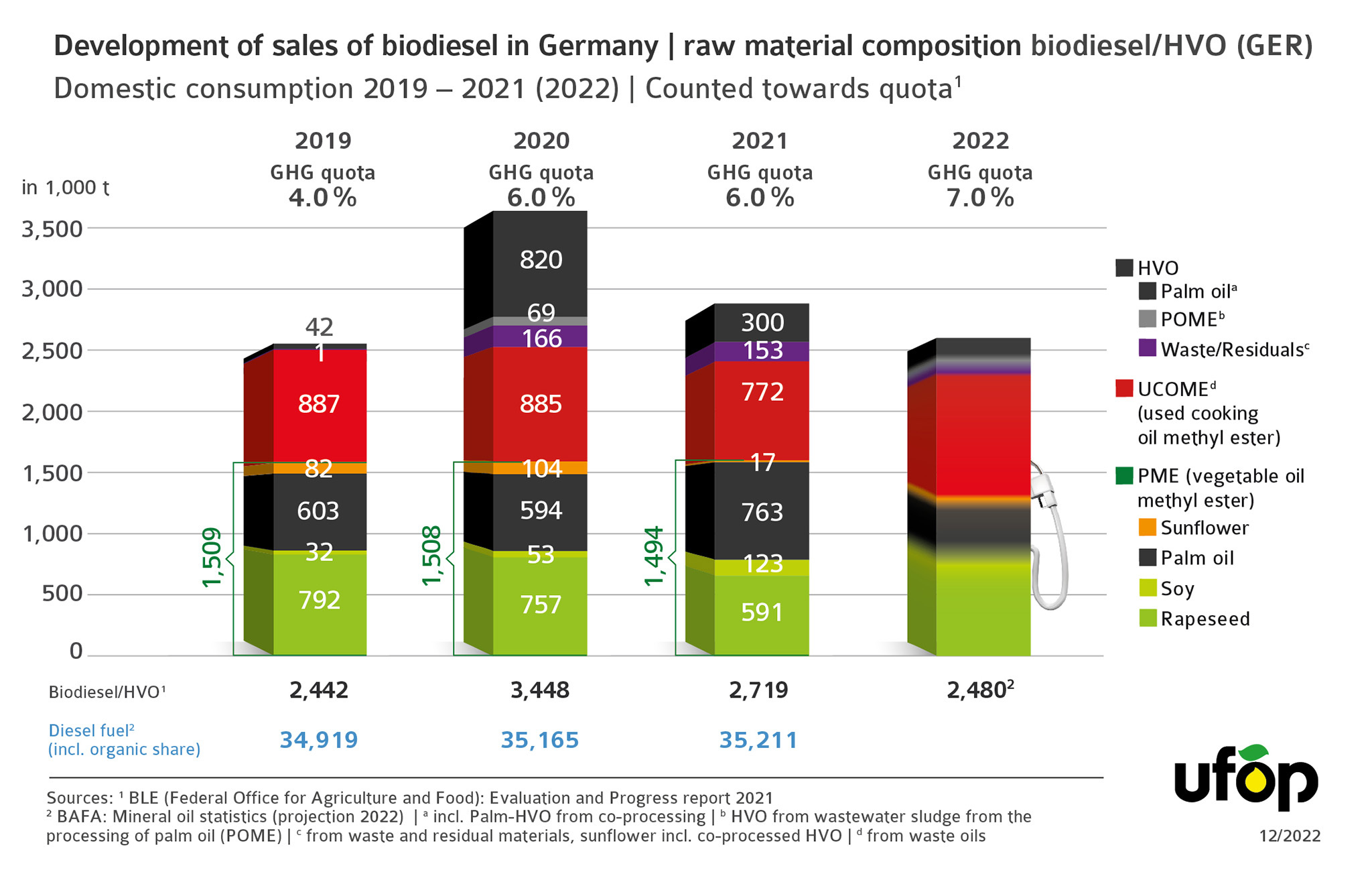11.1 million tonnes of CO2 saved by biofuels in 2021
UFOP: Biofuels an important part of the toolbox for climate protection in transport
Berlin, 07 December 2022: For the time being, sustainably certified biofuels remain the most important option for decarbonising the transport sector. This was emphasised by the Union for the Promotion of Oil and Protein Plants (UFOP) after the Federal Agency for Agriculture and Food (BLE) announced its evaluation of the sustainability certificates for offsetting against the GHG quota obligation. The average GHG reduction of the biofuels used of 84 % again confirmed the successful efficiency competition within the GHG quota system.
According to the BLE, a total of more than 3.9 million tonnes of biofuels were used, of which approx. 2.72 million tonnes were biofuels replacing fossil diesel (biodiesel, HVO, etc.), and approx. 3.5 million tonnes in the quota year 2020. In terms of raw materials, palm oil is the most important source of raw materials with a total of 1.063 million tonnes, followed by used cooking oils and fats with 0.772 million tonnes and rapeseed oil with approx. 0.6 million tonnes.
Compared to the quota year 2020, the share of HVO from palm oil in particular decreased by 0.52 to 0.3 million tonnes. This is due to the fuel standard for diesel, which allows a maximum of 7% by volume to be added to biodiesel; above this, HVO is added. The higher total quantity in 2020 is due to the fact that the GHG quota of 6% had to be fulfilled exclusively through the physical use of biofuels in the year in question. The option of GHG quota transfer was not possible again until 2021 with the same quota level. Therefore, the UFOP expects a total demand for the diesel market of approx. 2.5 million t of biodiesel and HVO for the quota year 2022 with a GHG quota increased to 7 %. The association points out that the share of biofuels from palm oil to be counted towards the GHG quota is limited to 0.9 % of final energy consumption in road transport in the quota year 2022; from 2023 onwards, crediting is no longer possible in this country.
The UFOP notes that sustainably certified biofuels can not only make a measurable contribution to climate protection in transport, but must do so because of the still small contribution of e-mobility. This is confirmed by the evaluation recently published by the Directorate General of Customs on the fulfilment of the GHG quota: a share of only 25,000 t CO2eq was shown for e-mobility. Basically, the quota year 2021 also confirms the importance of biofuels from cultivated biomass in their bridging function for the fulfilment of the GHG reduction targets in the transport sector according to the current Climate Protection Act. The UFOP therefore once again firmly rejects a lowering of the cap for biofuels from cultivated biomass below the compromise of 4.4% of final energy consumption in road and rail transport.



 Union zur Förderung von Oel- und Proteinpflanzen E.V.
Union zur Förderung von Oel- und Proteinpflanzen E.V.